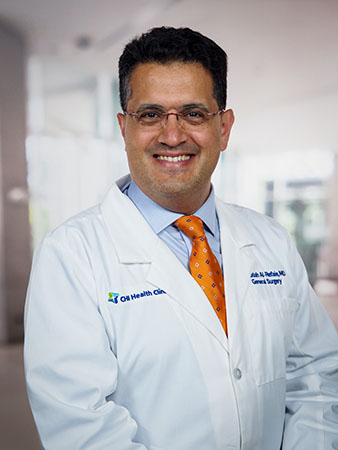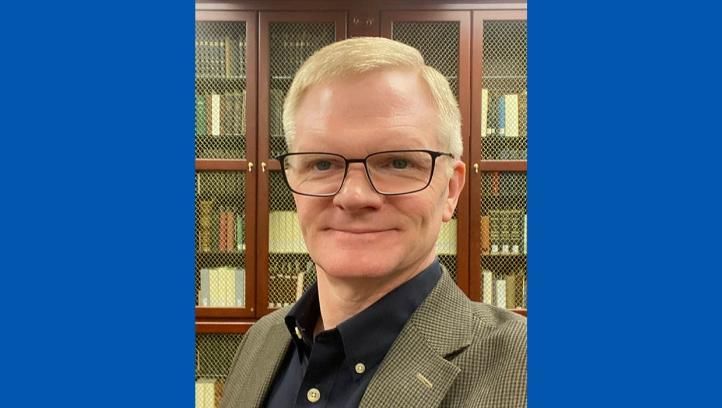
Creighton researcher to test whether AI can improve post-operative care


Whether artificial intelligence and related technologies such as natural language processing (NLP) can improve post-surgical outcomes is an emerging question confronting the medical profession, and the Creighton University School of Medicine hopes to provide an answer.
Waddah Al-Refaie, MD, FACS, chair of the Department of Surgery at both Creighton University and CHI Health Clinic, is partnering with his former employer at the Maryland-based MedStar Health Research Institute and Georgetown University School of Medicine to test whether patients recovering at home from gastrointestinal cancer surgery might benefit from communicating with an enhanced Alexa-like device.
Designed to recognize accent and cadence, and to provide real-time and case-relevant responses, the voice-assisted, remote patient symptom monitoring system (VARSMS) device aims to improve post-surgical recovery by encouraging adherence to dietary and medication schedules and improving communication with healthcare providers.
“We know that AI and NLP have emerged as innovative technologies,” Al-Refaie says. “It’s been used in a variety of non-health care sectors and has now moved to the healthcare sector. What is unclear is whether it will make things better. Will it save lives? Will it improve care? Or will it worsen known disparities in cancer care?
“We are testing that question via a randomized clinical trial.”
The five-year, $3 million study involves patients selected from high-risk populations who are recovering from high-risk operations. It is funded by the National Institutes of Health, which, Al-Refaie says, proved interested in comparing results from urbanized East Coast states like Maryland, the District of Columbia, and a largely rural Midwestern state like Nebraska.
Minority populations, which tend to have less access to support services, will be a particular focus of the study. Black and Hispanic patients are twice as likely as white patients to experience complications after GI cancer surgery, and earlier research indicates that these disparities may be driven by adverse events when patients are recovering at home, potentially under difficult socioeconomic conditions. Rural populations suffer similar complexities.
“The overarching goal of this project is to reduce disparities in healthcare,” Al-Refaie says. “Ethno-racial minorities and rural populations have complex social and medical situations.
“Number one, they’re poor. They have uneven health coverage, access to healthcare is difficult and convoluted, technology becomes challenging for them, and then they have more co-morbidities while their support systems at home are not as rigorous. That places them at higher risk for post-operative complication and even death.”
As many as five Creighton-affiliated gastrointestinal surgeons will be involved in the study, with results analyzed by Al-Refaie and Nawa Shara, PhD, director of the Center of Biostatistics, Informatics and Data Science at the MedStar Health Research Institute.
“Ensuring open and timely communication between patients and providers is paramount in addressing disparities in health outcomes,” Shara says. “We firmly believe that leveraging artificial intelligence can effectively tackle the challenges faced by our most vulnerable patients.
“We hope to continue to see promising results in the immediate post-operative period and in the future, exploring how these tools can be integrated to improve the patient-provider relationship throughout the continuum of care.”
Research reported in this publication was supported by the National Institute on Minority Health and Health Disparities of the National Institutes of Health under Award Number R01MD018424. The content is solely the responsibility of the authors and does not necessarily represent the official views of the National Institutes of Health.
















